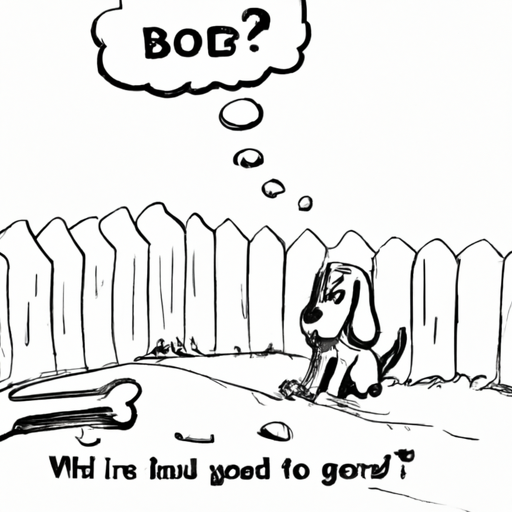Understanding Your Dog’s Behavior
As a caregiver, you may have noticed that your dog has a peculiar habit of hiding food. This can be quite puzzling, especially considering the domesticated nature of modern dogs. You often might find yourself asking, “Why does my pet do this?”
This behavior is ingrained in dogs from their ancestors, the wolves. In the wild, food is not always guaranteed. Hence, wolves often resort to burying or hiding excess food to protect it from other predators or for times of scarcity.
Even though your home provides a secure environment and regular meals, your dog still carries these survival instincts.
The Reasons Behind the Behavior
Several factors could trigger your dog to hide their food. Here are the most common ones:
-
Survival Instinct: Despite the comforts of modern living, your dog’s instinctual behavior can still kick in, prompting them to stash food for later.
-
Overfeeding: If you’re providing more food than your dog can consume in one sitting, they might hide the surplus.
-
Stress or Anxiety: Changes in the environment or perceived threats could make your dog resort to hiding food.
-
Competition: If you have multiple pets, your dog might hide their food to prevent others from eating it.
-
Health Issues: Although less common, certain health conditions could lead to food hiding.
How to Address This Behavior
While it might seem cute or harmless at first, food hiding can lead to problems, such as attracting pests or causing food to spoil. Here are some strategies you can employ:
- Feed your dog smaller portions more frequently.
- Provide a secure and calm feeding environment.
- Consult with a vet if the behavior persists, as it could be a sign of health issues.
Recognizing When It’s a Problem
Table 1. Signs That Your Dog’s Food Hiding Is a Problem:
| Signs | Explanation |
|---|---|
| Persistent Food Hiding | If your dog continuously hides food despite changes in feeding routines or environments, it could indicate an underlying issue. |
| Behavioral Changes | Changes in eating habits, coupled with other behavioral changes like aggression or nervousness, could signal stress or anxiety. |
| Physical Symptoms | If your dog shows signs of ill-health, such as loss of appetite, weight loss, or lethargy, immediate veterinary attention is necessary. |
Frequently Asked Questions (FAQs)
Q: Is food hiding a sign of illness in dogs?
A: While it can be, food hiding is usually more related to instinctual or behavioral issues. But if your dog shows other signs of illness, consult a vet.
Q: Should I stop my dog from hiding food?
A: If the behavior is causing issues like pest infestation or food spoilage, you should address it. Alter feeding routines, provide a secure environment, and consult with a vet if necessary.
Q: What if my dog becomes aggressive when I try to remove hidden food?
A: Aggression can indicate stress, anxiety, or resource guarding. It’s best to consult with a professional dog trainer or behaviorist in these cases.
By understanding and addressing your dog’s food hiding behavior, you can ensure they are healthy, happy, and secure.



